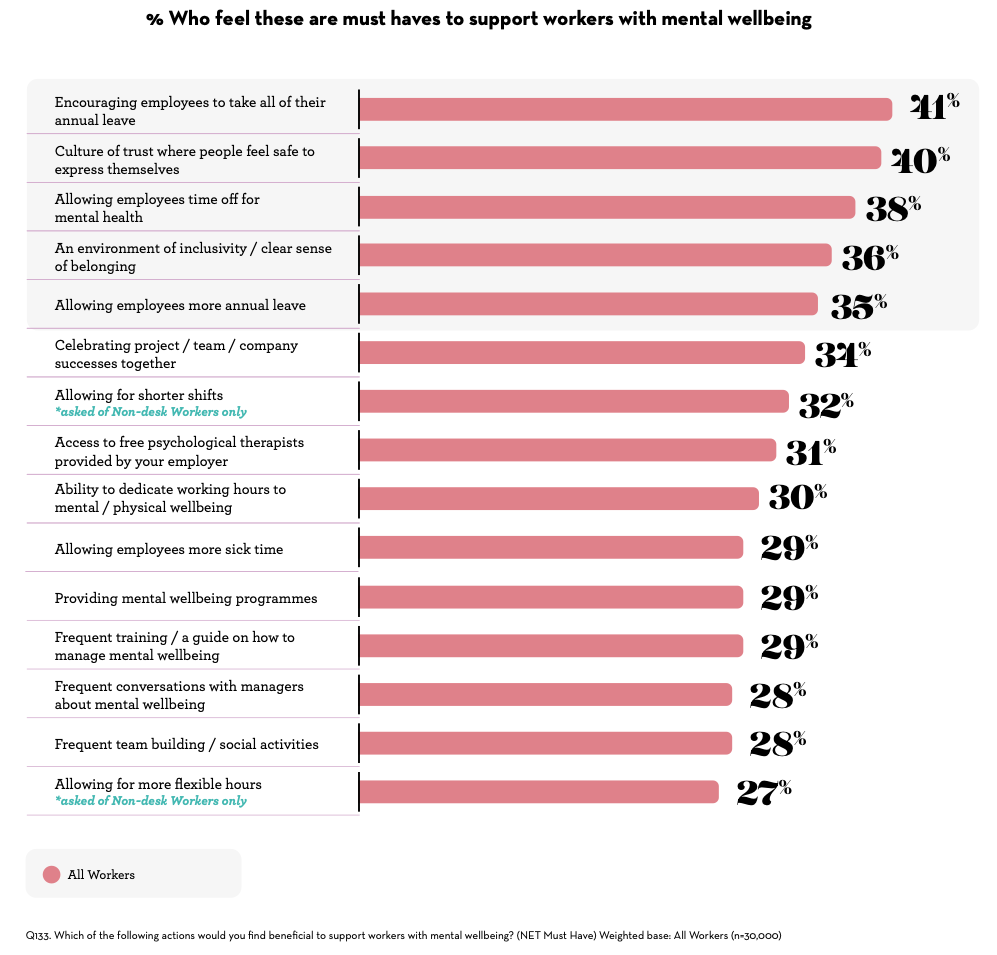How To Retain Your Greatest Talent Amidst The Great Resignation

The Great Resignation is showing no signs of slowing down, with 60% of employees reporting that they are passively looking for opportunities in 2022. This points to the challenges that employers face in retaining employees. The Great Resignation has seen a mass exodus of employees in search of better opportunities, while the newer Quiet Quitting trend has seen employees putting in the bare minimum at the workplace in an attempt to prevent burnout. Employers should not take their workers for granted, as losing a great talent would mean finding and training recruits, which equates to investments that could be put towards retaining trusted employees. Through extensive surveying, we have uncovered the latest insights for leaders to keep their best talents.
Talk about career progression
Being sensitive to mental wellbeing
Mental health is an important yet disregarded topic in the workplace. Burnout, which is physical or emotional exhaustion caused by stress, afflicts 36% of the workforce. A further 35% have stated their intention of quitting within the next 12 months due to a lack of work-life balance and burnout. An emotionally-drained workforce is detrimental for both the individual and the company, resulting in lowered productivity and morale. This could lead to toxic workplaces, which lead people to quit quietly. Companies are at risk of losing reliable employees. Encouraging employees to take all of their annual leave is considered a must-have for 41% of employees to support their mental wellbeing. Through this, employees can take time off to address their mental health concerns and promote a healthier work-life balance. Even simpler things like encouraging an active lifestyle or going for a walk to freshen the mind can lead to a better working environment for employees.

Prepare for the future
Economic and geopolitical uncertainty leaves workers feeling concerned about their employability, especially in the recovery phase of the Covid-19 pandemic. Megatrends that pose a potential risk to workers’ roles and livelihoods, such as the gig economy, digitalisation, automation, and artificial intelligence, are also causes for concern. As employers, these megatrends must be assessed which will impact workers in the organisation, ensuring they have the skills and competencies they need in the future. Investing in the future of your workforce through reskilling and upskilling can open the door for employees to prepare for the future while maintaining their drive. 70% of all workers place the responsibility on their employers to ensure a better working future. If your best talent cannot access the opportunities within your organisation, they will find them elsewhere, whether that means a career change or a move to a competitor.
The whitepaper uncovers ways that could be applied to retaining existing talent. Losing a great talent can be costly, which is why the retention of employees is essential. With the current insights, leaders can strategise to ensure that their workforce continues to strive toward excellence and efficiency. By identifying the high-impact areas, leaders can ensure an engaged and future-proofed workforce. While headline results such as “27% of the global workforce are planning to quit in the next 12 months” indicate a looming Great Resignation, leaders who are mindful of employees’ career progression, mental wellbeing, and the impact of megatrends can adapt to these times to retain their best talents. For more information on this topic, the full survey, analysis, and recommendations, download the Adecco Group’s White Paper: Global Workforce of the Future.
To learn more about Adecco’s HR Solutions, drop us an email at marketing.my@adecco.my or fill in a quick enquiry here. We care and are ready to help you!






